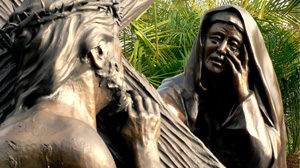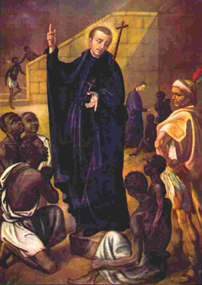1 Corinthians 15:35-37, 42-49
Luke 8:4-15
Reflection
God’s word—God’s very being, God’s very life—is hidden away in each of us like a seed waiting to sprout, take root, and blossom into something truly good and beautiful. That is the message of today’s gospel, the well-known parable of the sower and the seed. Like any gospel, it’s good news because it says that the God who loves us and lives within us wants to come fully to life in each of us.
But, like any parable, there is much in this gospel story that makes us uneasy. Indeed, we may even protest that what Jesus narrates is horribly unfair because the seeds have no say in where they are sown; where they fall seems entirely at the whim of the rather careless sower. Some seeds are trampled before they even have a chance to grow. Some land on rocky ground; they struggle to live, but die from lack of moisture. Other seeds are flung among thorns where any promise of life is slowly choked out of them. Very few seeds find themselves in soil where they can grow and blossom and flourish as seeds are meant to do. We are prompted to ask: “Why didn’t the sower do a better job with the sowing?”
And yet, before we object too much, isn’t it true that we can see ourselves in each example of sowing? Don’t we sometimes “receive the word with joy” but “fall away in time of temptation”? And aren’t we sometimes like those that Jesus says hear God’s word but allow it to wither in them because of the “anxieties and riches and pleasures of life”? Perhaps the parable’s point is that just as we do not sow the seed, neither do we harvest it. We should, as Jesus teaches, embrace God’s word “with a generous and good heart,” doing all we can to nurture and care for it. But ultimately a fruitful harvest—God coming fully to life in us—is much more God’s work than our own.
Paul Wadell is Professor of Theology and Religious Studies at St. Norbert College in De Pere, Wisconsin, and a member of the extended Passionist family.








